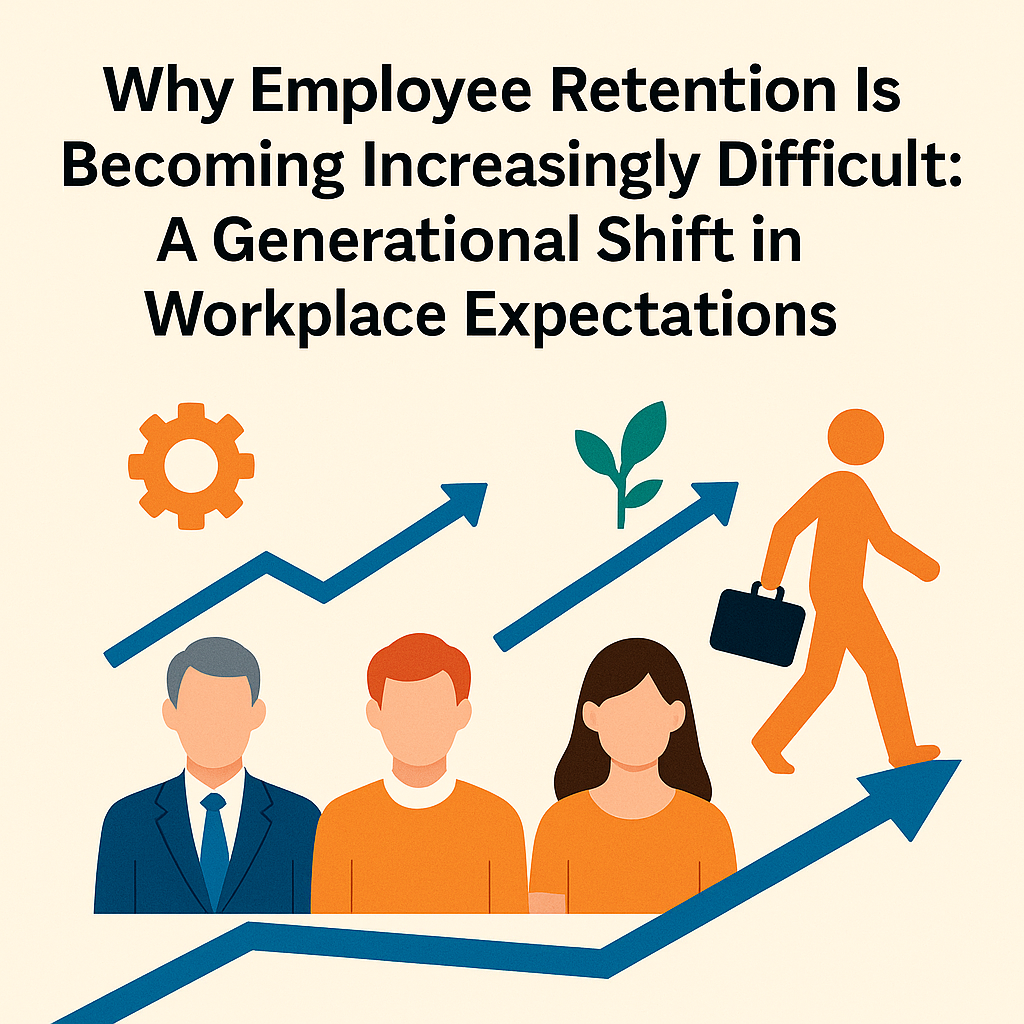
Job Hopping: A New Normal!
The other day, one of my students shared that she had moved to another company with abetter position and package. I was genuinely happy for her—it was a great career jump in just 15 months, surely a result of her merit and the opportunity she seized. A few months earlier, another student who graduated in 2022 told me he was already on his third job.That made me pause and wonder—why are companies unable to retain good employees? Ist his new generation simply more ambitious and eager to switch jobs, unlike ours? Or are companies failing to meet their expectations?We need to realize that the world of work has evolved through three major revolutions. The industrial revolution was an era when people took up jobs for survival. The necessity was Roti, Kapda, Makaan and loyalty to the workplace was unquestioned. The common belief then was “the boss is always right.” That generation formed the grandparents of today’s workforce. Our generation saw the emergence of IT companies and the rise of the information revolution. Our focus shifted to improving our standard of living. We pursued good salaries, bought houses on EMIs, prioritized our children’s education, and we didn’t mind switching jobs if a better offer came along. Still, we believed in staying with an organization for at least five years to gain stability and meaningful experience. Over time, this information revolution faded as information became freely and easily available to everyone. Today, we are living in the age of the digital revolution. This generation is not focused on survival anymore—that’s already been taken care of. They are focused on quality of life, not just the standard of living. They seek purpose, flexibility, growth opportunities, inclusion, transparency, and trust. If these expectations are not met, they are quick to explore new opportunities without hesitation. Employee retention has become a significant challenge in today’s world, driven by a complex mix of changing workforce expectations, rapid technological shifts, new workplace dynamics, and evolving socio-economic realities. Today’s generation, especially Millennials and Gen Z, actively look for purpose and alignment between their personal values and the mission of their organization. If they don’t find that alignment, they are ready to move on. The post-pandemic era has further raised expectations—flexible schedules, remote or hybrid work are now seen as essential, not optional. Companies that cannot offer this flexibility find themselves facing higher attrition rates. Career growth and learning have also become non-negotiable. Continuous learning, upskilling, and clear career progression paths are now key drivers of employee satisfaction. If people do not see growth opportunities, they leave. With digital platforms like ‘LinkedIn’ and ‘Indeed’, job opportunities are more visible and more accessible than ever before. Talented employees frequently receive better offers, and switching jobs every two to three years has become not only culturally acceptable but often a smart career move. Long-term loyalty is no longer the norm as it was in our generation, when we believed it was essential to give at least five years to a company for stability and depth of experience. It is important to appreciate that each generation has been motivated by different factors. Baby Boomers valued job security. Our generation looked for a better standard of living and stability. Millennials and Gen Z prioritize flexibility, purpose, and workplace culture. Employers often struggle to meet all these diverse expectations at the same time. When asked why they leave so soon, many employees cite a lack of engagement and recognition. They mention poor leadership, micromanagement, and a lack of empathy as major reasons for moving on. High-stress environments with unrealistic expectations, coupled with neglect of mental health, push people away. Inadequate salary growth and non-competitive benefits, especially in the current inflationary climate, also drive employees to seek better-paying jobs. Retaining employees today requires much more than just competitive salaries. Companies must foster a positive, inclusive, and flexible workplace culture. They need to actively support employee growth, mental well-being, and career progression. Leadership must be empathetic, supportive, and transparent. Roles should be meaningful and aligned with individual purpose and growth aspirations. Retention today is not a one-time effort—it is a continuous strategy that must adapt to the changing needs and values of the workforce. Companies that fail to do this will not only face high turnover but will also lose institutional knowledge, incur higher recruitment costs, and see declining morale among those who remain.